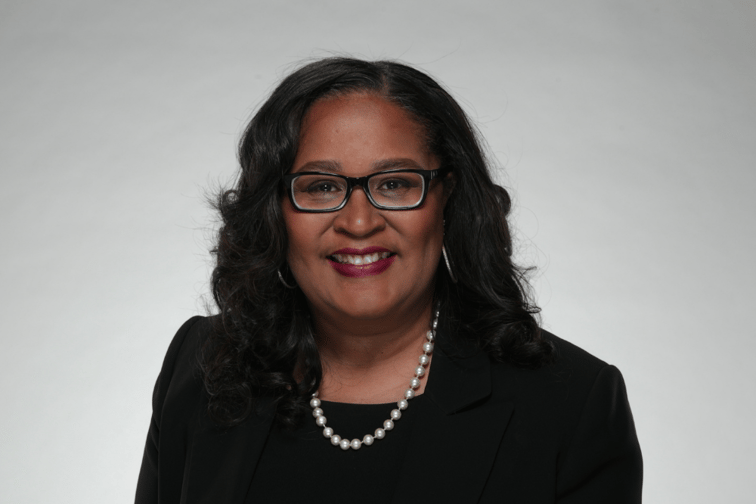

“For people trying to frame in their minds the relevance, the importance and the impact of diversity, equity and inclusion, this is what I have to say to them – ‘diversity is the recipe, inclusivity is adding ingredients to enhance the flavour and equity is adding the veggie option. And all around that is the belonging piece which is inviting people to eat or to cook with you’.”
Speaking with Insurance Business ahead of JAMS UK’s Black History Month celebration – a hybrid session exploring ‘The Evolution of the Insurance Industry & Opportunities for Change’ – Rebekah Ratliff (pictured), mediator and arbitrator at JAMS, had a clear message for the insurance market. Ally might be a noun in the dictionary, she said, but it’s a verb in the way it applies to the DE&I movement.
Discussing the upcoming session, she noted that putting DE&I into action is at the heart of what JAMS is looking to achieve with today’s event.
“Everything I do in the insurance space, including my influence on the next generation of insurance professionals is, I believe, payment of a debt that I owe,” she said. “And so with October being Black History Month in the UK, I wanted to be part of a programme that would bring information and inspiration to the insurance market, specifically in London and the UK.
“And I’m very fortunate to have my two trade association affiliations – ACIN (the African Caribbean Insurance Network) and the Insurance Supper Club – and I’m proud that they’re co-branding with us to bring forth this very important acknowledgement of the effects of the origins of insurance on what is currently happening and the future, and of what we can do to welcome the next generation of insurance professionals into an industry that is progressive.”
Among the key topics at play during the event are dissecting the intersectional effects of Black history on the Alternative Disputes Resolution (ADR) profession and exploring the vital role of ADR in promoting equitable inclusion. Ratliff, a former commercial complex insurance claims professional, who now works in the mediation space, highlighted how the event will look to tie together the intersectional relationships between insurance, the law and ADR.
There is an access to justice issue in communities with disparate economic conditions, she said, and alongside the celebration of Black History Month, she wants to open up the discussion around the role of ADR in bridging that gap. She noted that being an ally in today’s DE&I culture can all too easily become a catchphrase when what it needs to be is a call to action.
Diversity is a fact, Ratliff said, and as a result, that fact has got to be reflected across insurance workspaces and leveraged to get the right people into the right positions. It’s not about using unauthentic qualifications to justify creating these positions but rather reaching out to people from underrepresented communities who do have the skillsets to provide solutions that match businesses’ needs.
“That’s what we’re looking for in the inclusion piece,” she said. “And we want these people to be included equitably and we want to ensure that the richness of these Black and Brown cultures is a contributor in the corporate space. Because profitability-wise, research shows that the inclusion of diverse professionals with different backgrounds and skills and thought processes and cultures, brings a richness to our industry and to every industry.”
There’s little doubt that ADR provides a strong answer to the lack of access to justice across multiple underrepresented communities, she said, and JAMS’ upcoming discussion is especially well timed given the increased spotlight on ADR since the COVID pandemic. As forward-thinking as the insurance industry tends to be, nobody anticipated the COVID-19 pandemic and lockdowns lasting as long as they did, and with the backlog of cases in courts, ADR moved to front-of-mind for many.
What she’s seeing now, Ratliff said, is that more ADR professionals are emerging across the market in response to the more open-minded stance towards alternative dispute resolution. As a keen proponent of this, particularly of the value of mediation which sees disputes resolved by those who care most about the matter, she’s pleased to see the uptick in people looking to mediation as a solution and in professionals entering the mediation sphere.
“So, for me, a successful event will be a robust conversation that enables interaction from the audience,” she said. “It’s a 90-minute programme and the reason we made it 90 minutes is that we want to have time for our panellists to bring their gifts to the conversation, and their experiences and their perspectives, but we also want to hear from our attendees and participants. And we’re so excited about this that we’re already talking about a part two.
“[Because] this is about taking Black History Month and then using that to frame what we’re going to look like as an industry in the future. And that’s what we’re hoping to do – to inspire our attendees to be part of these solutions and part of the change we want to see.”
